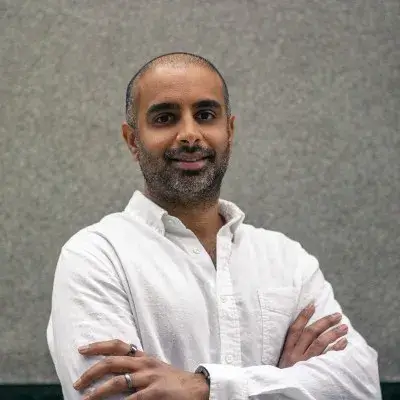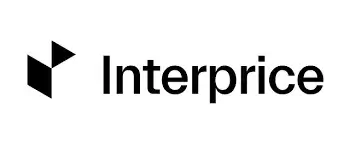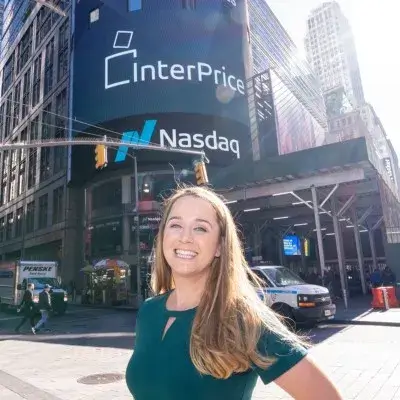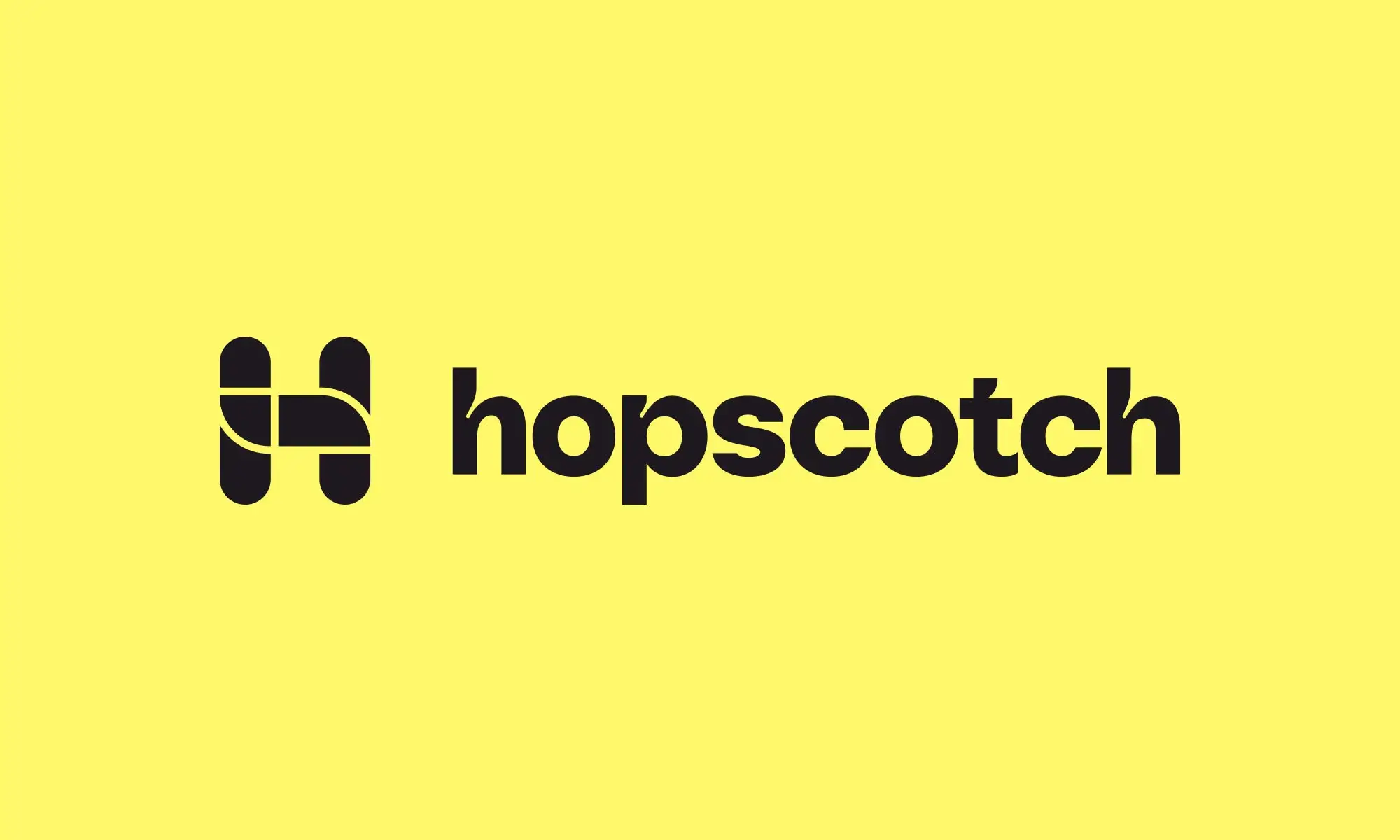Ready to build your own Founder-Led Growth engine? Book a Strategy Call
Frontlines.io | Where B2B Founders Talk GTM.
Strategic Communications Advisory For Visionary Founders
Actionable
Takeaways
Solve the integration burden:
Qolo succeeded by taking on the complex task of unifying different payment types that customers previously had to integrate themselves. Patricia explained, "That burden is actually shifted to the client...Qolo actually unifies it for them." B2B founders should look for opportunities where they can absorb complexity that customers are currently forced to handle themselves.
Navigate market corrections strategically:
During the fintech market correction, Patricia's team refocused on fundamentals: "Put the excitement aside...let's make sure we're all focused on verticals that we have a right to win in, that we have a fast path to monetize." B2B founders should be prepared to make hard decisions about resource allocation and organizational focus when market conditions shift.
Balance product and go-to-market investment:
Qolo initially focused heavily on product perfection at the expense of sales and marketing. Patricia admitted, "We are terrible at marketing and we're going to change that." B2B founders should ensure they don't over-index on product development while neglecting go-to-market capabilities.
Leverage strategic customer wins:
Qolo used their success with major banks to build credibility: "To the extent that you get a top 25 bank to sign an enterprise level agreement...we capitalize on that from a social media and marketing perspective." B2B founders should strategically amplify significant customer wins to build market momentum.
Focus on sustainable unit economics:
Rather than pursuing growth at all costs, Qolo prioritized efficiency and profitability. Patricia noted, "We're all sort of now thinking about profitability versus grow at all costs. I think that's a healthy thing." B2B founders should build their growth strategy around sustainable unit economics rather than pure top-line growth.
Conversation
Highlights
Building the Future of Unified Payments: How Qolo Reached $7M ARR by Solving Integration Headaches
In a recent episode of Category Visionaries, Patricia Montesi shared how Qolo, a cloud-based payments platform, is transforming payment infrastructure by unifying capabilities that traditionally required complex integrations. After raising $30 million and reaching $7M ARR, they’re now on track to join the elite 13% of startups that cross $10M ARR.
The Hidden Cost of Payment Innovation
The payments industry has a dirty secret: as major fintechs expanded their capabilities through acquisitions, they created a hidden burden for their customers. “Whenever they thought, ‘oh, I need a different payment functionality,’ a lot of times it was done through M&A,” Patricia explains. “But they created this amazing company that has all these capabilities, but they never connected at all.”
This meant customers had to build complex integrations themselves just to use the features they were paying for. “That burden is actually shifted to the client,” Patricia notes. “They have to sort of build what we always call ‘you have to code around the inefficiencies and unify it yourself.'”
A Different Approach to Payment Infrastructure
Instead of cobbling together disparate systems, Qolo built a unified platform from the ground up. “We combine card issuing, we combine all of the bank payments, both traditional and modern. And then we underpin all of that with a third layer which is our bank grade ledger and core,” Patricia explains.
This approach allows companies to modernize their payment capabilities without completely replacing their existing systems. As Patricia puts it, “Now we have a pretty interesting solution for them without having to rip and replace your current solution. COLO can actually, you know, in an instant make you truly modern.”
Navigating the Fintech Winter
The 2021-2022 fintech downturn forced Qolo to make hard strategic choices. “Hard decisions have happened over the last couple years,” Patricia acknowledges. “Hard decisions around the number of employees, hard decisions around the way we’re organized and really focusing on the outcomes.”
They shifted from a “grow at all costs” mentality to sustainable growth, focusing only on verticals with clear paths to revenue. This disciplined approach paid off – they’re now growing 100% year over year and winning major bank clients like KeyBank and Huntington.
The Product-Marketing Balance
One key lesson from Qolo’s journey is the importance of balancing product excellence with go-to-market execution. “We are terrible at marketing and we’re going to change that,” Patricia admits candidly. The company initially focused heavily on building a perfect product at the expense of sales and marketing efforts.
To address this, they brought in an experienced CRO first as a fractional hire, then full-time. “We invested in him to help us get to this place where now we’re adding to the biz dev team, now we’re adding to the marketing efforts,” Patricia explains.
Looking Ahead
Qolo’s vision extends beyond just serving fintech companies. “When I look out three to five years, we’re gonna be powering dozens of top banks around the country,” Patricia predicts. “We are going to help them innovate without having to rip and replace a core that costs millions of dollars and years to do.”
Their unified approach to payments infrastructure, combined with their newfound focus on sustainable growth and balanced go-to-market execution, positions them well to achieve this vision. In an industry where integration complexity often holds back innovation, Qolo’s platform promises to remove those barriers and enable the next generation of payment capabilities.
The key insight from their journey? Sometimes the biggest opportunities come not from building new capabilities, but from making existing ones work better together. By taking complexity off their customers’ plates, Qolo has found a path to sustainable growth in the competitive fintech infrastructure market.
Recommended Founder
Interviews


Matt Bivons
CEO & Founder of Canopy
Matt Bivons, CEO & Founder of Canopy: $30M Raised to Build a Modern Servicing Platform for Scaling FinTechs


Ankit Ratan
Co-Founder and CEO of Signzy
Ankit Ratan, Co-Founder and CEO of Signzy: Over $38 Million Raised to Build the Future of Digital Onboarding Infrastructure


Varda Bachrach
Director of Marketing of ChargeAfter
700% AI Traffic Growth: ChargeAfter’s GEO Playbook

Klas Bäck
CEO & Co-Founder of Pagos
Klas Bäck, CEO & Co-Founder of Pagos: $44 Million Raised to Power the Future of Payments Operations


Thibaut Sahagian
CEO of Multis
Thibaut Sahagian, CEO of Multis: $9 Million Raised to Build a New Category of Software Designed to Meet the Needs of Web3 Organizations


Sandro Zweig
CEO and Co-Founder of tiun.
How tiun validated product-market fit with 6-12 months of pilot data before scaling | Sandro Zweig


Florian Wimmer
Co-Founder & CEO of Blockpit
Florian Wimmer, Co-Founder & CEO of Blockpit: $15 Million Raised to Power the Future of Crypto Tax Management


Joshua Silver
Founder and CEO of Rainforest
How Rainforest justifies the ROI of hosting a podcast and conference | Joshua Silver


Bob Suh
CEO of OnCorps
Bob Suh, CEO of OnCorps: $18M Raised to Help Large Financial Institutions Solve Operational Problems with AI

Chandini Jain
CEO & Co-Founder of Auquan
Chandini Jain, CEO & Co-Founder of Auquan: $8 Million Raised to Transform Financial Intelligence Through AI


Wade Arnold
CEO and Founder of Moov
Wade Arnold, CEO and Founder of Moov: $77.5 Million Raised to Build the Future of Embedded Payments


Yasmin Graeml
Marketing & Communication Leader of Flourish Fi
Yasmin, Marketing & Communication Leader at Flourish Fi: Driving Financial Engagement with Innovative Tech


Felix Rodriguez
CEO & Founder of Finally
Felix Rodriguez, CEO & Founder of Finally: $110 Million Raised to Power the Future of Finance Automation


Don Muir
CEO of Arc
Don Muir, CEO of Arc: Over $180 Million Raised to Empower Startups with a Better Cash Management Experience


Donald Muir
Co-Founder & CEO of F2
How F2 hires only ex-finance professionals for sales instead of traditional salespeople | Donald Muir


Jack McDonald
CEO of PolySign
Jack McDonald, CEO of PolySign: $50 Million Raised to Power the Future of Digital Assets


Omri Mor
CEO & Co-Founder of Routable
Omri Mor, CEO & Co-Founder of Routable: $100 Million Raised to Transform AP Automation for Fast-Growing Companies


Beatriz Gomez
Chief Marketing Officer of Ontop
Community Lead Growth Masterclass w/ Beatriz Gomez


Ben Borodach
Co-Founder and CEO of April
Ben Borodach, Co-Founder and CEO of April: $40 Million Raised to Embed Intelligent Tax Experiences


Jonas Overgaard
CEO of Anyday.io
Jonas Overgaard, CEO of Anyday.io: $4M Raised to Transform the Buy Now Pay Later Market


Nik Talreja
CEO & Co-Founder of Sydecar
Nik Talreja, CEO & Co-Founder of Sydecar: Over $16 Million Raised to Make Venture Deal Execution a Frictionless Process


Swapnil Shinde
CEO and Co-Founder of Zeni
Swapnil Shinde, CEO and Co-Founder of Zeni: $47+ Million Raised to Build the Finance Operations Category


Kalpesh Kapadia
CEO and Founder of Deserve
Kalpesh Kapadia, CEO and Founder of Deserve: $50 Million Raised to Build the Future of Credit Cards


Steven Greene
CEO of Standard Practice
Steven Greene, CEO & Co-Founder of Standard Practice (Previously Nibble Health): $8 Million Raised to Bring the Fintech Revolution to the World Healthcare Payments


Michael Babineau
Co-Founder & CEO of Turnstile
How Turnstile positioned quote-to-cash for founders who don’t know the category exists | Michael Babineau


Magali Chapuis
Marketing Manager of Embat
Magali Chapuis, Marketing Manager of Embat: Strategic Insights for Scaling Fintech Marketing Across Borders


Eric Velasquez Frenkiel
Founder and CEO of Pomelo
Eric Velasquez Frenkiel, CEO of Pomelo: $70 Million Raised to Build the Future of Remittance


Olga Chin
CEO and Founder of InterPrice Technologies
Olga Chin, CEO and Founder of InterPrice Technologies: Over $10 Million Raised to Build the Future of Capital Markets Treasury Management


Scott Dorey
Co-Founder of OpenPath
Scott Dorey, Co-Founder of OpenPath: $25 Million Raised to Build the Future of Payments


Nathan Beckord
CEO of Foundersuite
Nathan Beckord, CEO of Foundersuite: $13 Million Raised to Build the Go-To Platform for Startup Fundraising


Renaud Laplanche
Co-Founder and CEO of Upgrade
How Upgrade built 6 billion-dollar products by designing for multi-product from day one | Renaud Laplanche ($6B Valuation)


Ron Benegbi
CEO & Founder of Uplinq
Ron Benegbi, CEO & Founder at Uplinq: Over $5 Million Raised to Transform SMB Lender’s Existing Credit Evaluation Process


Fiona Sherwood
CMO of Dasseti
The Death of Gated Content: Why This CMO Gives Everything Away


Tate Hackert
Co-founder & Chief Strategy Officer of ZayZoon
How ZayZoon built 300+ payroll partnerships to reach 15,000 businesses without direct sales | Tate Hackert

Caleb Avery
Founder & CEO of Tilled
Caleb Avery, Founder & CEO of Tilled: $40 Million Raised to Build (and Dominate) the PayFac as a Service Category

Henrique Dubugras
Co-Founder and Co-CEO of Brex
Henrique Dubugras: the Story of Brex ($12 Billion+ Valuation)


Daniele Grassi
CEO of Axyon AI
Daniele Grassi, CEO of Axyon AI: $5.5 Million Raised to Power the Future of Financial Markets with AI


Rodney Reisdorf
Co-Founder & CEO of Co-Founder & CEO
Rodney Reisdorf, CEO of Verivend: $3 Million Raised Transform Private Capital Transactions


Helen Chong
Head of Growth of Puzzle
Helen Chong, Head of Growth at Puzzle: Collaborating with Founders – Insights for Effective Marketing Alignment


Sohaib Zahid
CEO and Co-Founder of Railz
Sohaib Zahid, CEO and Co-Founder of Railz: $15 Million Raised to Build to Accounting Data as a Service Category


Iris Pfeifer
VP of Growth of Wisetack
Iris Pfeifer, VP of Growth at Wisetack: Mastering B2B Marketing Through Sales Alignment and Product Strategy


Colin Luce
CEO & Co-Founder of Basis Theory
Colin Luce, CEO & Co-Founder of Basis Theory: $20 Million Raised to Build the Future of Payments Tokenization


Reed Switzer
CEO of Hopscotch
Reed Switzer, CEO of Hopscotch: $10M to Build the Future of B2B Payments For SMBs


Patrick Mollard
CEO & Co-Founder of Fipto
Patrick Mollard, CEO & Co-Founder of Fipto: $16 Million Raised to Build the Future of Blockchain Payments


Brian King
CEO of LODAS Markets
Brian King, CEO of LODAS Markets: $8.5 Million Raised to Power the Future of Alternative Investments


Laura Kornhauser
Co-Founder and CEO of Stratyfy
Laura Kornhauser, Co-Founder and CEO at Stratyfy: $10 Million Raised to Power the Future of Financial Inclusion


Nicholas Lembo
VP of Marketing of Coast
Navigating GEO: Earned Media & SEO Tactics That Actually Work


Rafael Loureiro
CEO of Wealth
Rafael Loureiro, CEO of Wealth: $16 Million Raised to Build the Future of Estate Planning


John Lunn
CEO and Founder of Gr4vy
John Lunn, CEO and Founder of Gr4vy: $27 Million Raised to Build the Future of Payments Infrastructure


Daumantas Dvilinskas
CEO & Co-Founder of TransferGo
Daumantas Dvilinskas, CEO & Co-Founder of TransferGo: $125 Million Raised to Build the Future of Cross-Border Payments


Daniel Grunstein
CEO and Co-Founder of Crowded
Daniel Grunstein, CEO and Co-Founder of Crowded: $6.4 Million Raised to Transform Nonprofit Financial Management


Shamir Karkal
Co-founder and CSO of Sila
Shamir Karkal, CEO of Sila: $20+ Million Raised to Build the Money API For Fintech


Debbie Soon
Head of Marketing of Privy
Storytelling for Technical Products w/ Debbie Soon


Ahmad Ibrahim
CEO of NeoTax
Ibrahim, CEO of NeoTax: $13 Million Raised to Build the Future of Tax Automation


Yogi Goel
How Maxima moved upmarket from 10-person startups to 500-1,000 employee companies after early customer feedback | Yogi Goel (Maxima)


Carmen Li
CEO of Silicon Data
Carmen Li, CEO of Silicon Data: $5M+ Building the World’s First GPU Compute Risk Management Platform


Steffen Vollert
Co-Founder of Volt
Steffen Vollert, Co-founder of Volt: $87 Million Raised to Build the World’s Leading Global Real-Time Payment Network


Julio Martínez
Co-Founder and CEO of Abacum
Julio Martínez, Co-Founder and CEO at Abacum: $40 Million Raised to Build the Future of FP&A


Halle Kaplan-Allen
Head of Marketing of Sydecar
Why LinkedIn Thought Leader Ads Beat Traditional B2B Creative


Bryan McCarty
Director of Product and Product Marketing of Orum
Donuts & Product Launches: Orum’s Unconventional Event Strategy


Stephany Kirkpatrick
CEO and Founder of Orum
Stephany Kirkpatrick, CEO and Founder of Orum: Over $85 Million Raised to Build an API integration for Instant Payouts

Tal Shahar
CEO & Co-Founder of Atlas Invest
Tal Shahar, CEO & Co-Founder of Atlas Invest: $13 Million Raised to Transform Real Estate Financing


Ben Goldin
CEO and Founder of Plumery
Ben Goldin, CEO and Founder of Plumery: $4.5 Million Raised to Power the Future of Digital Engagement for Banks


Fady Hawatmeh
Founder and CEO of Clockwork
Fady Hawatmeh, Founder and CEO of Clockwork: Nearly $3 Million Raised to Make Financial Modeling and Cash Flow Forecasting Easy


Jeremy Almond
CEO & Founder of Paystand
Jeremy Almond, CEO & Founder of Paystand: $100M Raised to Power the Future of B2B Payments


Steve Pomfret
Steve Pomfret, CEO & Founder of Cygnetise: $8 Million Raised to Build the Future of Signatory Management


Arik Shtilman
CEO of Rapyd
Arik Shtilman, Rapyd: $15 Billion Valuation (Unicorn Builders)


Jessica Zhang
CEO & Co-Founder of Pier
Jessica Zhang, CEO & Co-Founder of Pier: $2.5M Raised to Build the Future of Credit Infrastructure

